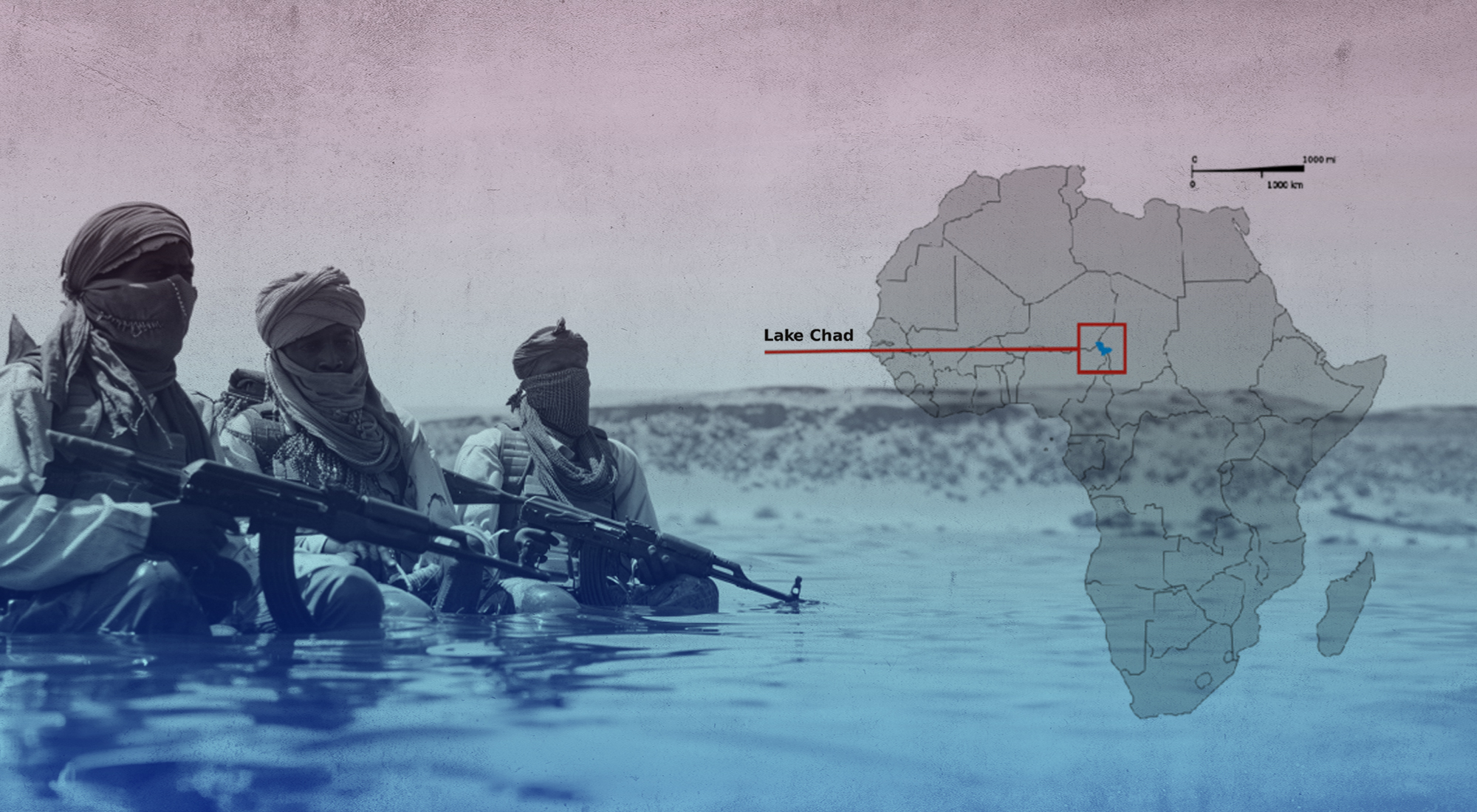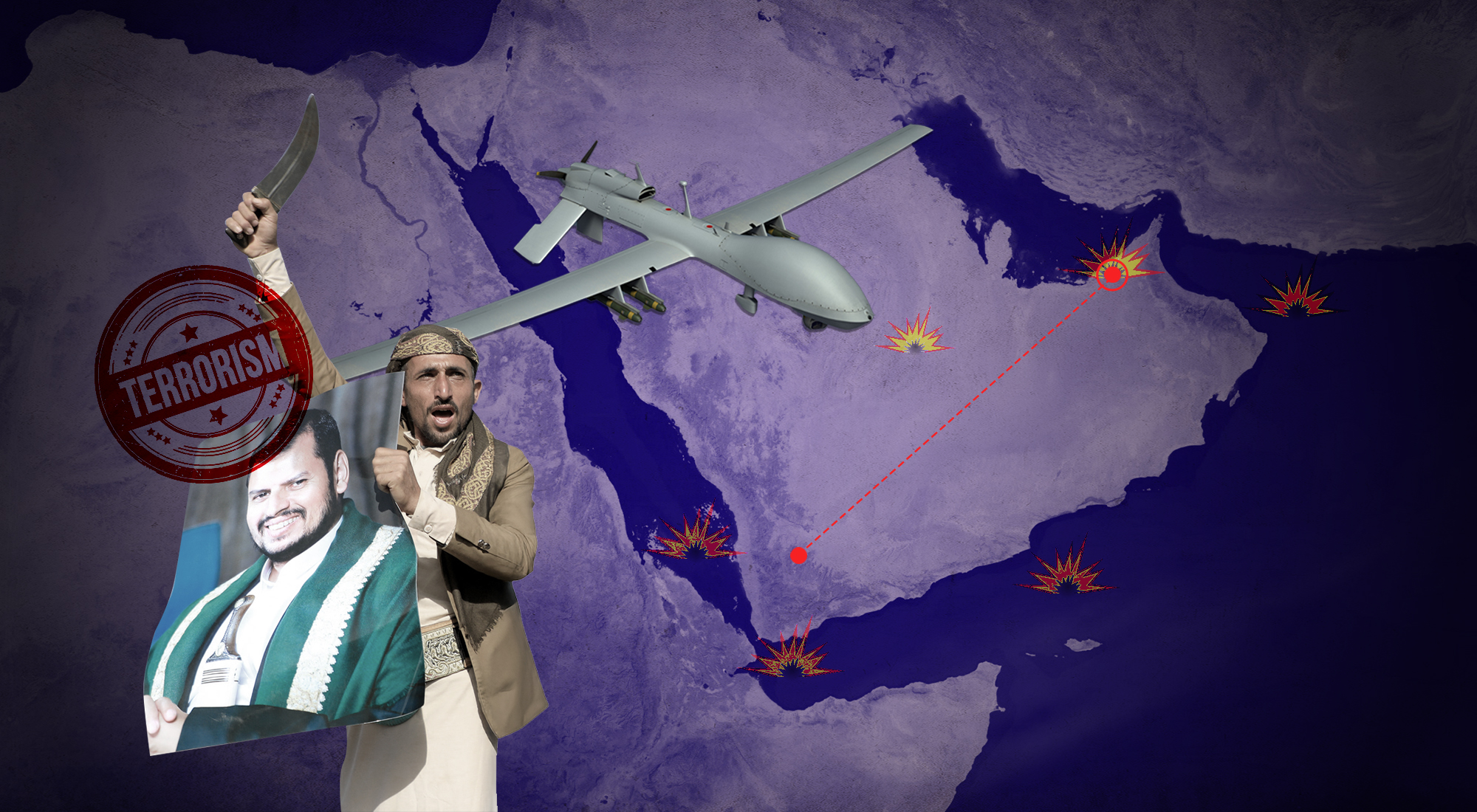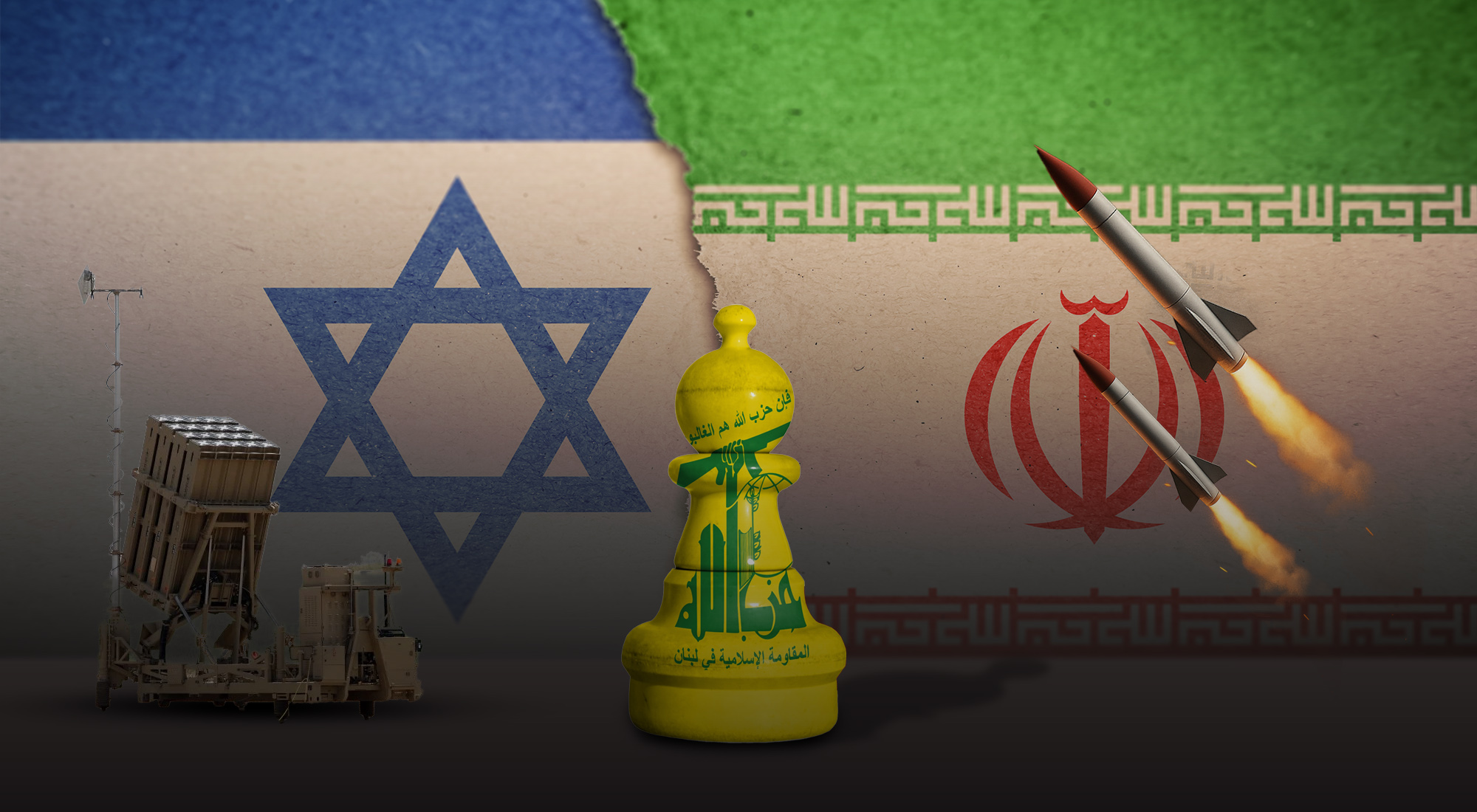The link between terrorism and water security in Africa presents a complex challenge that has become more important in the context of global security and sustainability. As terrorist groups gain control over vital water resources, such as those in Lake Chad, they not only exacerbate existing water scarcity but also leverage these resources to exert power and influence over local populations. The control of water resources by these groups introduces a strategic dimension to terrorism that goes beyond traditional acts of violence, embedding these actors deeply into the fabric of affected communities.([1]) This dynamic is further complicated by the effects of climate change, which intensify water scarcity, making affected regions more vulnerable to exploitation by terrorist organizations. The relationship between climate change, water security, and terrorism creates a vicious cycle where each factor amplifies the others, posing a significant challenge to peace, security, and development in Africa. As this research unfolds, it will explore the nuances of this interplay, aiming to shed light on the mechanisms through which terrorist groups impact water security and the broader implications for the continent’s stability and resilience against climate change.([2])
1. Objectives
- To investigate the extent to which terrorist groups control water resources in the African coastal regions, specifically focusing on areas like Lake Chad.
- To explore the relationship between water scarcity, exacerbated by climate change, and the growth of terrorism in affected African regions.
- To assess the humanitarian and socio-economic impacts of terrorist groups’ control over water resources on local populations.
- To identify strategies and recommendations for mitigating the impact of terrorism on water security, with an emphasis on sustainable management and security measures.
- To contribute to the broader discourse on climate change, water security, and terrorism, highlighting the interconnectedness of these issues and their collective impact on regional stability and development in Africa.
2. Background
The drought affecting Lake Chad is the most prominent example of the devastating threat to the national security of the countries around the lake, located on the southern edge of the African Sahel, due to climate change, which has turned it into a hotbed of terrorism.
Lake Chad, which was ranked as the sixth largest lake in the world in the 1960s, represents the primary lifeline for about 30 million people (in 2001) who benefit from its water for drinking, farming, grazing, and even fishing and trade.
Water scarcity is critical, affecting millions without safe drinking water, exacerbated by climate change and terrorism. Lake Chad, previously one of Africa’s largest water bodies, has drastically shrunk due to droughts, increased irrigation, and climate impacts, highlighting the destructive relationship between climate change and terrorism.([3])
Terrorist groups in vulnerable areas complicate water security challenges. For instance, in Lake Chad, they exploit water scarcity, using resource control as a weapon and recruitment tool. This destabilizes communities, undermines sustainable water management and climate adaptation efforts, and can lead to forced displacements, increased strain on water supplies in refugee areas, and escalated conflicts over resources.([4])
Depleting water resources increase opportunities for terrorists to exploit them, further reducing access to water and feeding the vicious cycle of violence and water scarcity. The combination of climate change and terrorism presents a dual threat to Africa’s water security, requiring a comprehensive approach that tackles environmental, social, and political factors. Understanding the multifaceted impact of water scarcity and terrorism is crucial for effective solutions. ([5])
Literature Review
The literature review explores existing research on the intricate relationship between water security, terrorism, and climate change in Africa. It delves into studies highlighting how terrorist groups like ISIS in West Africa and Boko Haram exploit environmental vulnerabilities and the socio-economic impacts of water scarcity.
This section seeks to build a comprehensive understanding of the dynamics at work by using a variety of sources, including academic papers, reports from international organizations, and case studies specific to regions like Lake Chad.
– The plan to save Lake Chad requires $50 billion to feed it with tropical river water.
– The loss of 90 percent of the lake’s surface causes millions of people to lose their source of livelihood and some of them turn to crime and terrorism.
– More than 5 million people in Lake Chad are threatened with famine.
– The disappearance of the lake will lead to a wave of mass exodus to Europe, border disputes between the countries bordering it, and an increase in the number of terrorist groups in the region.
1. Overview of water security challenges in Africa
Water security in Africa is challenged by environmental, socio-economic, and political factors. Regions such as the Sahel experience acute water shortages, exacerbated by erratic rainfall and droughts, alongside growing demands from agriculture, industry, and urban expansion. Inadequate infrastructure and governance further impair water management, depriving millions of people of clean water. Consequently, water insecurity impacts health and livelihoods, worsens food insecurity, and deepens poverty across African communities .([6])
Lake Chad Water Lake is the largest inland lake in the world in terms of area (2.5 million square km), thanks to the rivers and valleys that feed the lake with water.
But today Lake Chad faces the threat of extinction, as its surface area has shrunk by 90 percent. Previously covering 25,000 square kilometers in the 1960s, it has mostly dried up since the early 1970s and has been reduced to just 2,000 square kilometers, according to the “Nature/Scientific Reports” website. Climate change exacerbates water security issues with more severe droughts and floods, affecting water availability. These factors are combined with population explosions and over-irrigation.([7])
2. Relationship between climate change, water scarcity, and terrorism
Climate change worsens water scarcity in Africa, causing severe droughts and changing rainfall patterns, which impacts water resource availability. These conditions decrease agricultural productivity, threaten food security, and incite social unrest. Terrorist groups exploit these vulnerabilities for recruitment and expansion, targeting regions under environmental stress. The strategic value of water resources attracts these groups, who aim to control water supplies to dominate populations and territories.([8])
The Lake Chad region is one of the most volatile regions in the world, and the Global Terrorism Index in 2023 ranked its countries among the 10 least safe countries on the continent.
The Boko Haram organization, which settled in the northern part of Nigeria, quickly extended its activity to southwestern Chad, eastern Niger, and northern Cameroon, thanks to the nature of Lake Chad, which is distinguished by its dense jungles and many islands.
3. Case examples of terrorist control over water resources
Examples from Africa show how terrorists can exert control over water resources, most notably in Lake Chad. However, since 2015, ISIS West Africa has emerged as the dominant force in Lake Chad, sharing control of the region with Boko Haram, until the latter’s leader, Abubakar Shekau, was killed in May 2021, ending the conflict in northeastern Nigeria,[9] seizing water resources to restrict access for communities, and using them as a weapon. This impacts agriculture, fishing, and livestock, which are crucial for millions, worsening humanitarian crises, and fueling poverty and displacement. ([10])
In Somalia, the control of water resources by certain groups demonstrates how they exploit scarcity for tactical gains by imposing taxes on populations and manipulating agriculture to impact food security. Their control serves as a source of income and social coercion, solidifying their presence and challenging counter-efforts. These examples underline the complex relationship between water control, terrorism, and socio-economic instability, stressing the importance of unified strategies for security and water management to protect vulnerable communities.([11])
4. Countries affected by terrorist groups in Lake Chad
The Institute of Economics and International Peace released the eleventh edition of the Global Terrorism Index for 2024. According to it, the threat of terrorism has increased in the African Sahel, and for the seventh consecutive year, sub-Saharan Africa recorded the largest number of deaths caused by terrorism globally, an increase of 21% compared to 2022:([12])
1. Burkina Faso:
Burkina Faso ranked first in the list of the ten countries most affected by terrorism during 2023, and although the rate of attacks witnessed last year decreased by 16%, the number of deaths resulting from those attacks reached 1,907, up from 1,135 in 2022, an increase of 68%. Almost half of the terrorist attacks that occurred during 2023 were concentrated in the northwest of the country, along the borders with Niger and Mali.
3. Mali:
The number of deaths caused by terrorism in Mali during 2023 decreased by 20%—after seven consecutive years of increases—to 753 deaths, compared to 2022, and attacks decreased by 7% to reach 253 attacks.
8. Nigeria:
Nigeria recorded the first increase in terrorist activity in three years during 2023, as the total deaths increased by 34% to reach 524 deaths, the highest number of terrorism deaths the country has witnessed since 2020.
10. Niger:
Terrorist activity in Niger has seen a surge over the past year, with the number of terrorist attacks rising to 61, compared to 54 in 2022. The number of deaths has also doubled, reaching 468, up from 193 deaths. ([13])
Case Study: Lake Chad
1. Importance:
Lake Chad is vital for water security and supports millions in the Sahel region, which is crucial for agriculture and livelihoods across Nigeria, Chad, Cameroon, and Niger. Its importance makes it a target for terrorist groups aiming to control water resources, undermining regional stability.([14])
2. Terrorist Impact:
Boko Haram has utilized water scarcity in Lake Chad to increase its control and influence. By dominating water resources, it asserts power over communities and leverages this for operations and recruitment. According to the study titled “Lake Chad Region: Peace Passes Through Water, Not Weapons,” Boko Haram exploited the region’s residents’ lack of livelihoods to convince the poor of its ideology, even with financial incentives.
Such control interferes with agricultural and domestic water use, worsening water scarcity issues and contributing to regional instability.([15])
3. Climate Change Factors:
Climate change exacerbates water insecurity and terrorism in Lake Chad by causing lower water levels and increased desertification. It was in June 2021 that the United Nations warned that more than 5 million people were facing famine in Lake Chad. In April 2019, Nigeria’s President Muhammadu Buhari said that United Nations Secretary-General Antonio Guterres had agreed to help raise $50 billion for a project to save Lake Chad, which was drought-stricken.([16])
However, since then, only a few small projects have been implemented in the region that aim to support refugees and host communities, and donor countries have not been eager to provide aid or investments on such a large scale, particularly since the region suffers from security fragility and the returns from any long-term investment seem limited.([17])
4. Effects of Water Insecurity
Water insecurity in Lake Chad triggers social, economic, and environmental challenges, worsening food insecurity and economic development while degrading ecosystems. However, the risks of the disappearance of Lake Chad to the region and the world would be immense, as this would lead to famine in the region due to the people’s inability to irrigate their crops, provide drinking water for themselves and their livestock, and maintain food security.
Then crime and violence between local communities will multiply due to scarce resources, terrorist groups will recruit thousands of destitute and desperate people, and a lot of money will be spent on defense budgets instead of development.([18])
Even Europe will be affected by the disappearance of Lake Chad because millions of people who have lost their sources of livelihood will try to migrate to the continent in search of hope.([19])
5. Conflict
Water scarcity in Lake Chad exacerbates conflict and terrorism as groups exploit disputes over limited resources to gain influence. This situation escalates tensions and can trigger new conflicts, complicating peace and stability efforts.([20]) The countries of the region will subsequently get embroiled in a border dispute over the remnants of the so-called “extinct lake,” which could worsen the region’s already dire situation as migration and displacement will alter the region’s human population.[21]
Recommendations
Addressing the combined issues of terrorism, water insecurity, and climate change in areas like Lake Chad needs a comprehensive strategy. Improving water management with sustainable practices, efficient technology, and climate adaptation can enhance water availability and resilience. Strengthening community resilience through education, economic opportunities, and better infrastructure can reduce terrorist influence. Additionally, cross-border cooperation is vital for a unified approach to terrorism and water management.
International support and collaboration are crucial for resourcing and expertise in strategy implementation. Supporting peacebuilding and conflict resolution addresses terrorism’s root causes, and interventions in water security counter terrorist leverage. Investing in renewable energy, like solar-powered water systems, promotes sustainable access in remote areas, decreasing reliance on terrorist-controlled resources.
Conclusion
This study on terrorism, water insecurity, and climate change, particularly in Lake Chad, highlights a crisis affecting community stability. It emphasizes water’s role in conflicts, both as a target and a tool for terrorists targeting vulnerable populations. The results highlight the serious effects of water insecurity, such as restricted access to clean water, and its role in socio-economic and environmental challenges.
Climate change emerges as a critical driver that exacerbates existing vulnerabilities, intensifying the scarcity of water and thereby amplifying the potential for conflict and terrorism. The situation in Lake Chad serves as a poignant example of how environmental degradation, driven by changing climatic conditions, can undermine regional security. It highlights the urgent need for integrated solutions that address the root causes of water insecurity and terrorism in tandem with climate change mitigation and adaptation strategies.
Moreover, the humanitarian impact of water insecurity, characterized by displacement, famine, and increased mortality rates, calls for urgent and concerted efforts to ensure access to safe and sufficient water for all. The cycle of conflict and displacement further strains limited resources, creating a feedback loop that perpetuates the crisis. It is clear that without addressing the underlying issues of water management and climate resilience, efforts to combat terrorism may only achieve short-term success.
In conclusion, this study emphasizes the necessity of a holistic approach that combines sustainable water management, climate change adaptation, and counter-terrorism strategies. The interdependence of these issues requires collaborative, cross-sectoral, and innovative responses that leverage local knowledge and international support. The Lake Chad challenges are emblematic of broader global issues, underscoring the importance of water security as a cornerstone of peace, development, and sustainability. As we move forward, the lessons learned from this case study can impact policies and practices not only in Africa but also in other regions facing similar threats, guiding efforts towards a more secure and resilient future for vulnerable populations around the world.
([1])Smith, Johnathan and Abdullahi, Fatima, “Climate Change and Terrorist Tactics in Water-Stressed Regions of Africa,” Environmental Security Journal (2024), p.136.
([2])Johnson, Emily and Kwame, Peter, “The Strategic Use of Water as a Weapon by Terrorist Groups in the Sahel,” Journal of African Security Studies (2023), p.191.
([3])Okeke, Chinedu and Le Roux, Annette, “Sustainable Water Management in Conflict Zones: A Path to Counterterrorism,” Water Policy Review (2024), p.221.
([4])Patel, Sunita and Diop, Amadou, “Water Scarcity and Its Influence on Terrorist Recruitment in the Lake Chad,” Conflict and Resource Management Journal (2023), p.91.
([5])Gomez, Maria and Nkosi, Bongani, “Evaluating the Impact of Climate Change on Water Security and Terrorism in Sub-Saharan Africa,” Global Change and Security (2024), p.131.
([6])Tanaka, Hiroshi and Musa, Sarah, “Intersecting Crises: Water Insecurity, Climate Change, and Terrorism in Africa,” Journal of Environmental Studies and Peace (2023), p.133.
([7])Ahmed, Khalid and Singh, Rajiv, “Addressing the Nexus of Water Insecurity and Terrorism through International Cooperation in Africa,” International Affairs and Development Studies (2024), p.89.
([8])Bell, Catherine and Ojo, Michael, “The Ripple Effect: How Water Scarcity Fuels Terrorism in the African Continent,” Security and Development Review (2023), p.169.
([9]) “What Abubakar Shekau’s reported death means for Nigeria security,” Al Jazeera, May 28, 2021, https://www.aljazeera.com/news/2021/5/28/what-boko-haram-leaders-death-means-to-insecurity-in-nigeria
([10])Moreno, Luis and Ikpe, Esther, “Climate Change Adaptation Strategies to Combat Terrorism in Water-Vulnerable Regions of Africa,” Climate Action Research (2023), p.201.
([11])Roberts, Alan & Mwangi, James, “Terrorism’s Thirst: Water Scarcity as a Catalyst for Conflict in Africa,” African Studies Quarterly (2024), p.138.
([12]) “Global Terrorism Index 2024,” Institute for Economics and Peace, February 2024, https://www.economicsandpeace.org/wp-content/uploads/2024/02/GTI-2024-web-290224.pdf.
([13]) “Global Terrorism Index 2024,” Institute for Economics and Peace, February 2024, https://www.economicsandpeace.org/wp-content/uploads/2024/02/GTI-2024-web-290224.pdf
([14])Zhang, Wei and Abubakar, Laila “From Drought to Violence: Unpacking the Links Between Water Insecurity and Terrorism,” Journal of Peace and Conflict Studies (2023), p.49.
([15])Harper, Megan & Obi, Samuel “Water as a Weapon: The New Frontier in Counterterrorism Efforts in Africa,” Counterterrorism and Homeland Security Review (2024), p.58.
([16]) https://www.imctc.org/ar/eLibrary/Articles/Pages/article29.1.2022.aspx
([17]) “UN to help raise $50bn for Lanke Chad revival project,” Business Recorder, April 23, 2019, https://www.brecorder.com/news/491963/un-to-help-raise-50bn-for-lake-chad-revival-project
([18]) “Terrorism in the Lake Chad Basin represents the greatest challenge facing our time, and fighting it is a “decisive test”” United Nations News, November 12, 2021, https://news.un.org/ar/story/2021/11/1087432
([19])Thompson, Richard and Ali, Fatoumata, “Climate, Water, and War: Understanding the Terrorist Threat in Africa’s Water-Stressed Regions,” Environmental Security and Conflict Resolution (2024), p.115.
([21]) “Lake Chad Basin: The United Nations warns of the deteriorating humanitarian, security and protection situation in the region,” United Nations News, July 27, 2016, https://news.un.org/ar/story/2016/07/256552








